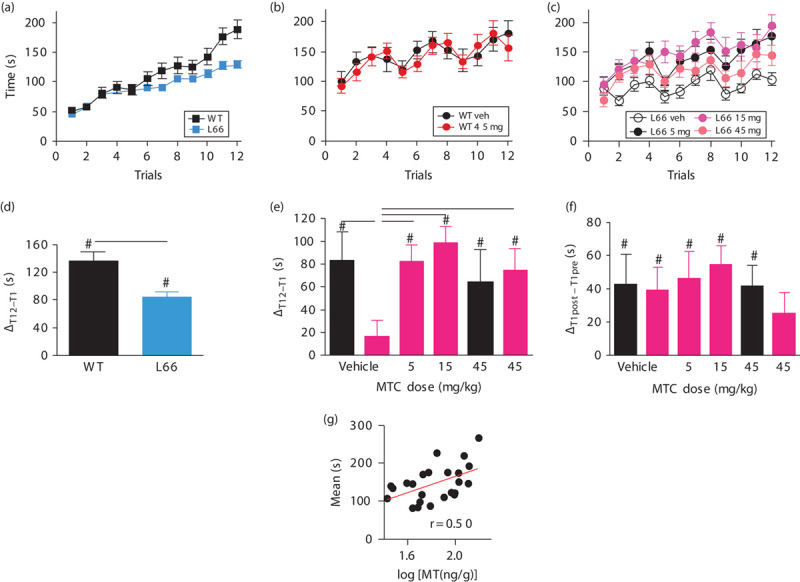Fig. 6.

Motor performance and motor learning on the RotaRod in MTC-treated cohorts. (a) Pretreatment performance is plotted as the time sustained on the accelerating rod in both WT and heterozygous L66 mice. L66 mice showed no performance deficit initially, but WT mice more readily learned the task over 3 days (four trials per day). (b) MTC did not affect post-treatment performance in the WT cohort compared with vehicle, but (c) it improved L66 performance at doses of 5 and 15 mg/kg, but not 45 mg/kg. Overall learning (determined as the difference in performances between trial 12 and trial 1) was less in L66 mice compared with WT mice both (d) before treatment and (e) after treatment with vehicle. This motor learning deficit was rescued by MTC at all doses (e, asterisks). Memory (shown by the difference between pretreatment trial 1 and post-treatment trial 1, f) did not differ between groups and was independent of dose. Values are expressed as mean±SE; *P<0.05; ***P<0.001; #reliable learning (data significantly different from 0). (g) Motor performance in L66 mice was correlated with the concentration of total MT in the brain (r=0.50, P<0.01). The 15 mg/kg doses are equivalent to 11 mg MT/kg for MTC. L66, Line 66; MT, methylthioninium; MTC, methylthioninium chloride; WT, wild type.
